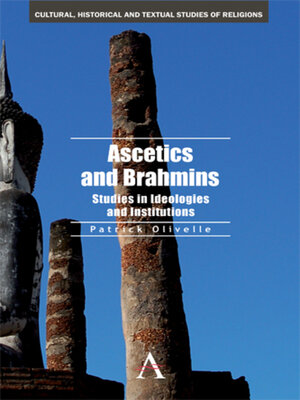Ascetics and Brahmins
ebook ∣ Studies in Ideologies and Institutions · Cultural, Historical and Textual Studies of South Asian Religions
By Patrick Olivelle

Sign up to save your library
With an OverDrive account, you can save your favorite libraries for at-a-glance information about availability. Find out more about OverDrive accounts.
Find this title in Libby, the library reading app by OverDrive.



Search for a digital library with this title
Title found at these libraries:
| Library Name | Distance |
|---|---|
| Loading... |
This volume brings together papers on Indian ascetical institutions and ideologies published by Patrick Olivelle over a span of about thirty years. Asceticism represents a major strand in the religious and cultural history of India, providing some of the most creative elements within Indian religions and philosophies. Most of the major religions, such as Buddhism and Jainism, and religious philosophies both within these new religions and in the Brahmanical tradition, were created by world-renouncing ascetics. Yet ascetical institutions and ideologies developed in a creative tension with other religious institutions that stressed the centrality of family, procreation and society. It is this tension that has articulated many of the central features of Indian religion and culture. The papers collected in this volume seek to locate Indian ascetical traditions within their historical, political and ideological contexts.
|This volume brings together a variety of Patrick Olivelle's papers on Indian ascetical institutions and ideologies that have been published over the past thirty or so years. Asceticism represents a major strand in the religious and cultural history of India, providing some of the most creative elements within Indian religions and philosophies. Most of the major religions, such as Buddhism, Jainism, and the religious philosophies both within these new religions and in the Brahmanical tradition, were created by world-renouncing ascetics. Ascetical institutions and ideologies developed in a creative tension with other religious institutions that stressed the centrality of family, procreation and society, and it is this tension that has articulated many of the central features of Indian religion and culture. The papers collected in this volume seek to locate Indian ascetical traditions within their historical, political and ideological contexts.







